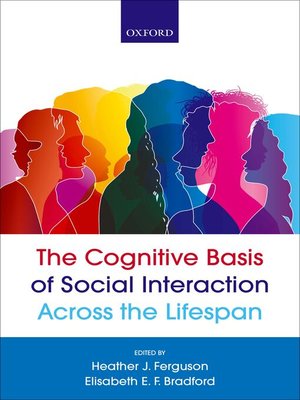
Sign up to save your library
With an OverDrive account, you can save your favorite libraries for at-a-glance information about availability. Find out more about OverDrive accounts.
Find this title in Libby, the library reading app by OverDrive.



Search for a digital library with this title
Title found at these libraries:
| Loading... |
Social interaction is an important aspect of everyday life and its success (or lack of) impacts heavily on our wellbeing. A vital part of successful social interaction is the ability to understand and predict events in terms of other people's mental states, such as their intentions, beliefs, emotions, and desires (termed Theory of Mind, ToM). Children typically develop the necessary skills for social interaction around four years old, and as healthy adults, we engage
in social interaction frequently and seemingly without a great deal of difficulty. This book explores how human social interactive abilities change across the lifespan, looking at infancy, early and middle childhood, adolescence and young adulthood, adulthood, and older age, as well as healthy and atypical development. Over nine chapters, leading researchers in the field provide an overview of the most recent findings, contribute to key debates on social phenomena (including their underlying mechanisms, environmental triggers, and neural basis), and outline innovative avenues
for future directions. Written in an accessible style, this book will appeal to a wide range of readers including academics and students of psychology, neuroscience, psychiatry, linguistics, and philosophy, as well as providing valuable insights for clinicians and practitioners working in the fields of social care, mental health, and education.






